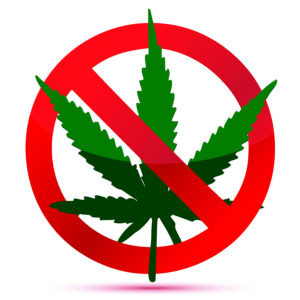Medical marijuana is now legal in 33 states and the District of Columbia. Yet, even if you have a prescription from a doctor, it is still illegal under federal law.
While the states and many physicians seem to think otherwise, the federal government still claims “marijuana does not have any accepted medical use.” The Department of Health and Human Services reached this conclusion in 2015 by ignoring the federal guidelines that require agencies to have such published scientific conclusions peer reviewed, which means the determination ran afoul of the Information Quality Act.
Put simply, they violated their own rules in an effort to stop medical marijuana. Neither the Drug Enforcement Administration nor HHS dispute this, but each contends that the other agency was responsible for overseeing the peer review process.
This controversy began in 2011, when the governors of Rhode Island and Washington asked DEA to allow medical prescriptions for marijuana. As required by law, DEA asked HHS for a “scientific and medical evaluation.” Despite marijuana being recognized as having a medical use by two-thirds of the states, along with medical organizations (like the American Academy of Family Physicians, American Public Health Association, American Nurses Association, Epilepsy Foundation, Leukemia & Lymphoma Society, and National Multiple Sclerosis Society), HHS concluded that there was no accepted medical use and sent that to the DEA. DEA published the HHS determination and used it as the primary evidence to base its decision to maintain a prohibition on medical prescriptions of marijuana. However, that conclusion was not subject to peer review by HHS or DEA, as required under the Information Quality Act.
Congress enacted the Information Quality Act in 2001 to ensure the information disseminated by federal agencies met at least a minimum standard of quality. The Office of Management and Budget responded by creating rules requiring that all scientific evaluations distributed by the government be peer reviewed.
To be clear, this is not a high bar. Getting independent experts to evaluate an agency’s decision is the absolute minimum standard to ensure quality. Agencies don’t have to follow the experts’ advice, but if the agencies’ claims are widely discredited they (and the public) at least need to be aware of it.
The Competitive Enterprise Institute in 2019 filed a “request for correction” asking HHS to explain why the agency failed to follow this mandatory protocol. HHS responded: “The information referred in your letter was never disseminated by HHS or the Assistant Secretary for Health and therefore, the IQA does not apply. … As you noted in your letter, the information at issue here was an interagency communication which was disseminated by DEA, not HHS.”
In other words, according to HHS, it was DEA who chose to disseminate this scientific evaluation without the proper peer review.
CEI then appealed to DEA to provide a rationale for why it chose to publish HHS data without a peer review required by the Information Quality Act. DEA answered in a January 31, 2020 letter that the request “concerns HHS’s information,” and, as such “it is not subject to an Information Quality Act request directed to the DEA.”
So both agencies now claim the other is responsible for failing to ensure the required peer review was done prior to publication. The truth is both agencies are at fault. As HHS knew DEA would rely on HHS’s scientific evaluation to determine the legal status of medical marijuana, it should have submitted its evaluation for peer review, as required by federal rules. DEA, in turn, should have demanded HHS follow Information Quality Act procedure and ensure peer review of their evidence prior to relying and publicizing it.
Though the literature has yet to reach a consensus on the scale of marijuana’s benefits for certain illnesses and conditions, it’s unlikely a peer review of the evidence would reach the conclusion that medical marijuana has no benefits. It has been found by randomized, double-blind, placebo-controlled studies to have positive benefits for chronic pain, Crohn’s disease, diabetic neuropathy, neuropathic pain, Parkinson’s disease and appetite stimulation in HIV/AIDS infection. Certainly, they could not seriously agree that there is no “accepted” medicinal use, an assertion contradicted by the fact that most states do accept marijuana as a valid treatment for patients.
While the agencies waste time playing the blame game, federal law still makes criminals out of patients who use, or wish to try, marijuana to treat their conditions. If the federal government wants to strip American adults and their physicians of the right to make decisions about their health, the least they should do is follow the law and have this medically-dubious determination evaluated by experts outside of the administration.

